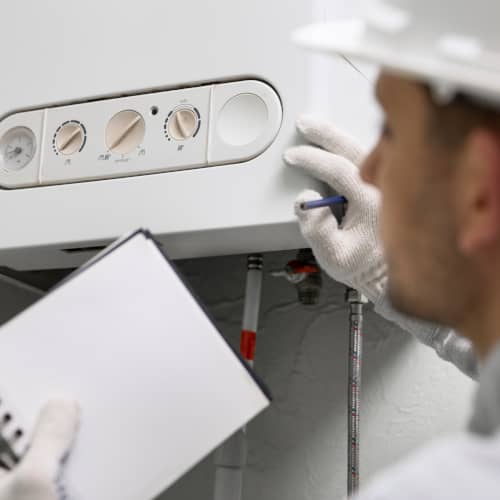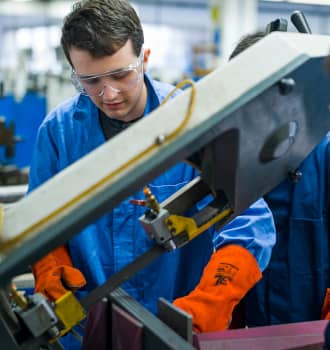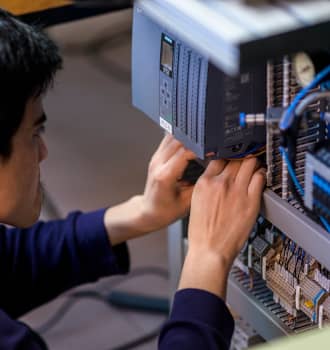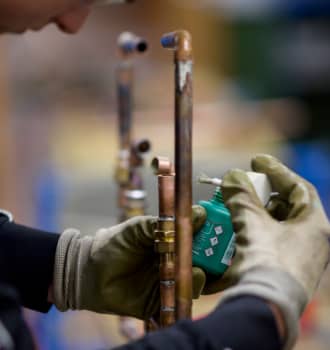Do you enjoy helping and caring for people? Would you like to be part of a team that intervenes during a medical emergency? This training qualifies you to transport patients while providing basic medical and psychological care in a pre-hospital environment, carry out telehealth services, develop emergency plans, organize predictable risk response units, and more.
- Degree: Emergency Medical Technician
- Professional field: Healthcare
- Duration: 2 academic years
- Total hours: 2,000 hours
- Theoretical hours: 1,485 hours
- Practical hours: 515 hours
Schedule:
- Mornings from 8:00 AM to 2:30 PM
Competencies
- Transporting patients to healthcare facilities.
- Providing basic medical and psychological care in a pre-hospital environment.
- Performing telehealth and telecare services.
- Assisting in the organization and execution of emergency plans, predictable risk response units, and healthcare logistics in individual and mass emergencies or disasters.
Modules
| Module | Total Hours | Classroom Hours | Workplace Hours |
|---|---|---|---|
| 0052: Preventive Mechanical Maintenance of the Vehicle | 66 | 33 | 33 |
| 0053: Emergency Logistics | 99 | 66 | 33 |
| 0054: Medical Equipment in Emergencies | 165 | 99 | 66 |
| 0055: Initial Medical Assistance in Emergencies | 198 | 132 | 66 |
| 0056: Specialized Medical Assistance in Emergencies | 264 | 165 | 99 |
| 0057: Patient Evacuation and Transport | 284 | 165 | 119 |
| 0058: Psychological Support in Emergency Situations | 66 | 33 | 33 |
| 0059: Emergency Plans and Predictable Risk Response Units | 66 | 33 | 33 |
| 0060: Tele-Emergencies | 66 | 33 | 33 |
| 0061: Basic Anatomy, Physiology, and Pathology | 99 | 99 | 0 |
| 1709: IPO I | 99 | 99 | 0 |
| 1710: IPO II | 66 | 66 | 0 |
| 1664: Digitalization | 33 | 33 | 0 |
| 1708: Sustainability | 33 | 33 | 0 |
| 0156: Professional English | 66 | 66 | 0 |
| C056: Professional Catalan | 66 | 66 | 0 |
| Optional Module (amp md4) | 33 | 33 | 0 |
| Optional Module (amp md8) | 33 | 33 | 0 |
| 1713: Intermodular Project | 198 | 198 | 0 |
Career Opportunities
- Ambulance Technician
- Emergency Medical Technician
- Telecare Operator or Emergency Coordination Center Operator
Further Studies
Related Mid-Level Vocational Training:
- Nursing Assistant Care
- Pharmacy and Parapharmacy
Related Higher-Level Vocational Training:
- Pathological Anatomy and Cytodiagnosis
- Hearing Aid Acoustics
- Dietetics
- Medical Documentation and Administration
- Medical Documentation and Data Management
- Oral Hygiene
- Diagnostic Imaging and Nuclear Medicine
- Clinical and Biomedical Laboratory
- Clinical and Biomedical Laboratory (Research Profile)
- Orthoprosthetics and Assistive Products
- Dental Prosthetics
- Radiotherapy and Dosimetry
Entry Requirements
Direct access is granted to applicants who meet one of the following requirements:
- Holding a Graduation Certificate in Secondary Education (ESO)
- Completing a specific access course for mid-level vocational training
- Holding a Technician or Auxiliary Technician diploma
- Completing the second year of Unified and Polyvalent High School (BUP)
- Holding equivalent studies recognized for academic purposes
- Passing the university entrance exam for students over 25 years old
- Completing the mandatory modules of an Initial Professional Qualification Program (PQPI)
- Holding a qualification that allows access to a higher vocational training program
Applicants who do not meet any of the above requirements must pass an entry exam. To take the exam, they must be at least 17 years old in the year of the test.











.jpg)

.jpg)
